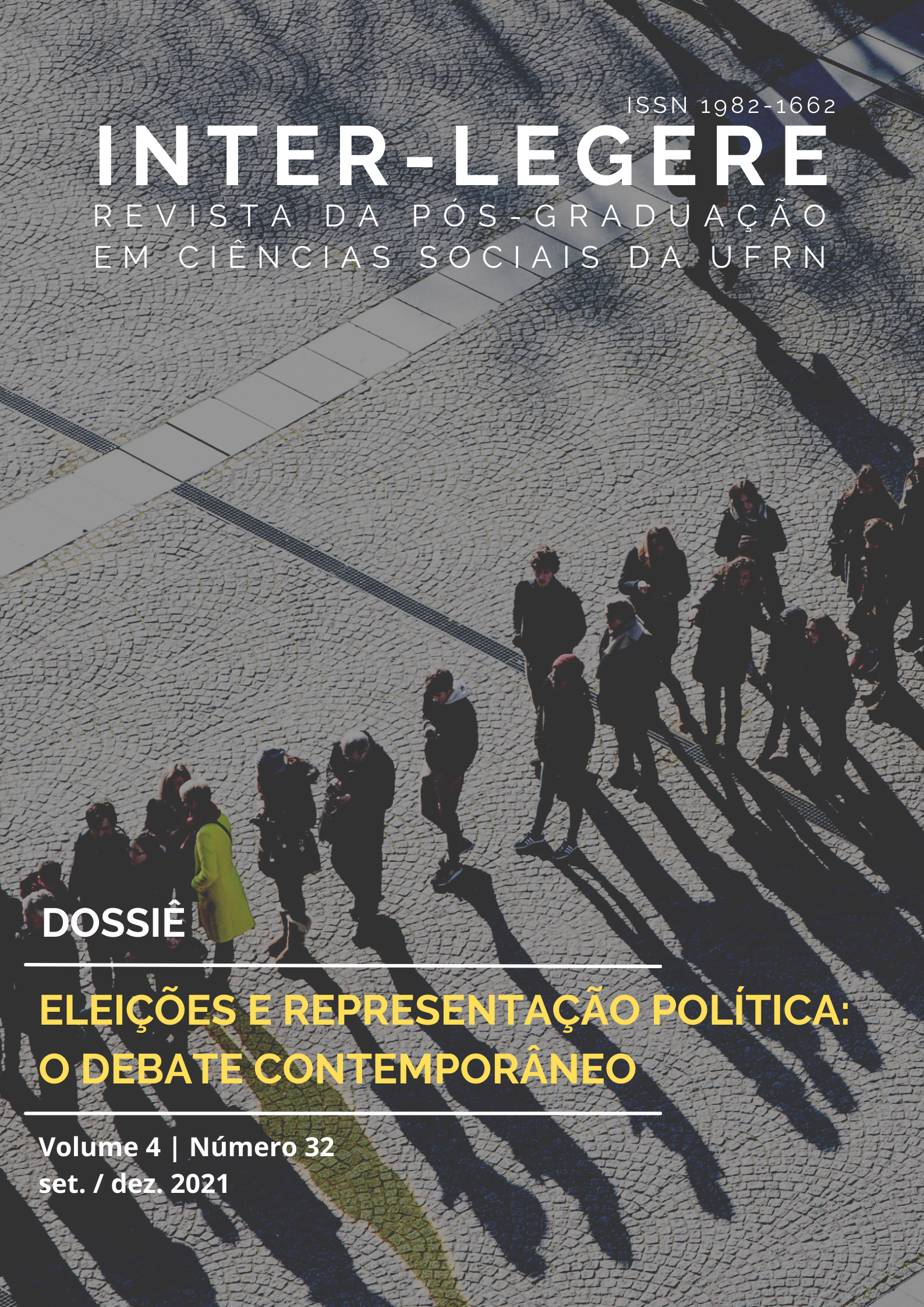PERTENCIMENTO RELIGIOSO E VOCAÇÃO POLÍTICA
ESTUDO DE CASO ACERCA DAS RAZÕES RELIGIOSAS DO EXERCÍCIO PARLAMENTAR
DOI:
https://doi.org/10.21680/1982-1662.2021v4n32ID25796Abstract
The objective of this article is to analyze the representations that parliamentarians linked to religious denominations elaborate about the legitimacy of parliamentary exercise from the idea of ??vocation, generated by the religious belonging. In other words, we intend to answer the following question: from what elements is religious belonging triggered to legitimize electoral pretensions and the parliamentary exercise in contemporary Brazil? Based on the notions of vocation, legitimacy and trajectory, the “religious reasons” listed by two councilors from the city of Fortaleza (Ceará) were analyzed as mechanisms for legitimizing entry and permanence in politics: the charismatic catholic Jorge Pinheiro (PSDB) and the evangelical of the Assembleia de Deus, Priscila Costa (PSC). The political vocation, as mobilized by these parliamentarians, carries two meanings: on the one hand, the weberian meaning of vocation, according to which political activity must serve as a means to defend a “cause”. On the other hand, the very insertion in the political field, the "call", so to speak, for representative activity derives from the need for religious identity groups, from institutional spaces, to instill their "Christian worldview" and influence public policies that affect them directly or indirectly. The understanding that their political activities fulfill a “mission” through the institutional structure reinforces the legitimacy of their mandates vis-à-vis the religious communities they represent, confirming the idea that they are politically oriented.


 Português (Brasil)
Português (Brasil) English
English Français (Canada)
Français (Canada) Español (España)
Español (España)





